#euskalduna
Explore tagged Tumblr posts
Text

#Good Ending#Alternate ending#high honour#Amphibia#Marcy Wu#Catholic School#popular girl#nerd#preppy#2010s#euskalduna#NFLD#Basque#Kanada atlantikoa#google translate#Order of the Tower#Ternua eta Labrador#kanadarra#dorrearen agindua#conservative
2 notes
·
View notes
Photo

Ayer tuvimos la oportunidad de fotografiar el desfile de Moda para todos en el Euskalduna con motivo del día mundial del síndrome de Down. Vimos gente auténtica, creativa, vital y muy divertida. Gracias por ser así. Disfrutamos mucho con vosotr@s. Me hubiera gustado sacaros a tod@s en este post. Podéis ver el resto del reportaje en el Flickr del Euskalduna 👇🏻 https://flic.kr/s/aHBqjAwTWN #euskalduna #bilbao #desfile #modaparatodos #moda #modelos #fotografia #evento #sindromededown #creatividad #creativos #vitality #vitalidad #autenticos https://www.instagram.com/p/CqISWHfNtJI/?igshid=NGJjMDIxMWI=
#euskalduna#bilbao#desfile#modaparatodos#moda#modelos#fotografia#evento#sindromededown#creatividad#creativos#vitality#vitalidad#autenticos
4 notes
·
View notes
Text
Random Real Thoroughbred: EUSKALDUNA NAIZ
EUSKALDUNA NAIZ is a horse born in Argentina in 1983. By INDIO LIGERO out of PAMTA. Link to their pedigreequery page: https://www.pedigreequery.com/euskalduna+naiz
0 notes
Text
Persiguiendo al eclipse del siglo
Un 27 de agosto de 1969 realizaba una escala el paquebote Monte Umbe de la naviera Aznar, procedía del puerto de Palma y en Barcelona tan solo se quedaría unas horas, tiempo más que suficiente para que el pasaje pudiera embarcarse para iniciar un nuevo viaje con rumbo al Mar Adriático que hacía semanas se anunciaba en la prensa. Dicho crucero los llevaría a recalar en Nápoles, Capri, Dubrovnik y…
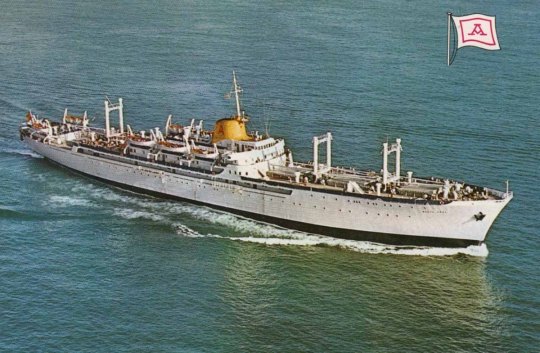
View On WordPress
#1969#Astilleros Euskalduna#eclipse solar#eclipse solar de 1973#Monte Umbe#Naviera Aznar#Puerto de Barcelona#transatlantico#Transolar Travel
0 notes
Text




Through the Years → Queen Letizia of Spain (2,448/∞) 29 November 2024 | Queen Letizia of Spain attends the premiere of the opera 'Il Trittico' on the occasion of the centenary of the death of Giacomo Puccini at the Euskalduna Palace in Bilbao, Spain. (Photo by Carlos Alvarez/Getty Images)
4 notes
·
View notes
Text



Queen Letizia of Spain at the premiere of the opera "Il Trittico" at the Euskalduna Palace in Bilbao, Pais Vasco - 29.11.27
4 notes
·
View notes
Text

La Renfe Mikado 141 F 2413 construida por Euskalduna de Bilbao en el año 1960 con el número de fábrica 374, perteneciente al último lote de Mikados de Renfe construido por Euskalduna de Bilbao en los años 1956 (numerado del 2385 al 2388, con los números de fábrica del 346 al 349) 1957 (numerado del 2389 al 2400, con los números de fábrica del 350 al 361) 1958 (numeradas 2401 y 2402, con los números de fábrica 362 y 363) 1959 (numerado del 2403 al 2409, con los números de fábrica del 364 al 370) y 1960 (numerado del 2410 al 2417, con los números de fábrica del 371 al 378)
2 notes
·
View notes
Text
Los AUPA! nacen para visibilizar valentía, creatividad y esfuerzo en la industria musical
Los AUPA! nacen para visibilizar valentía, creatividad y esfuerzo en la industria musical El jueves 31 de octubre, a las 12:00h, en el Palacio Euskalduna, se celebrará por primera vez la ceremonia de entrega de los nuevos reconocimientos AUPA!, una iniciativa disruptiva y diferencial que pretende homenajear y celebrar el trabajo de diferentes agentes de la industria musical. Continue reading…
0 notes
Text
Muere el Arquitecto especializado en PUENTES Javier MANTEROLA con 87 años..su más grande y famoso el puente COLGANTE de la CONSTITUCION [gran fallo que no tengo paso de peatones o ciclista] de 1812 [que redactaron en el teatro de COMEDIAS de SAN FERNANDO y sancionada en CADIZ donde trasladaron las CORTES por la invasión Napoleónica] en CADIZ que desemboca frente al CORTE INGLES..también hizo el de LOGRo+cOÑO que cruze corriendo 2021..y colaboro en el de VENTAS [MADRID] donde salve a una SUICIDA que me dijo que estaba en PARO LABORAL Y SEXUAL pues no podía llevarse a casa de su madre a nadie a FOLLAR donde vivir era un INFIERNO
Su obra más conocida probablemente sea el puente de la Constitución de 1812, inaugurado el 24 de septiembre del 2015 y que es el mayor acceso a la ciudad de Cádiz. Destaca especialmente su puente Ingeniero Carlos Fernández Casado, con el que la AP-66 salva el embalse de Barrios de Luna en la provincia de León, que fue récord mundial en varias categorías, siendo aún el segundo de mayor vano en España, precisamente tras el puente de la Constitución.
Autor de múltiples puentes en Zaragoza, en él recayó el diseño del puente Manuel Giménez Abad en la Z-30 y de los acueductos del Barranco de la Muerte con los cuales el canal Imperial de Aragón salva dicha vía. Con motivo de la Expo 2008, ideó proyecto de la pasarela del Voluntariado. Proyectó también el puente por el cual la LAV Madrid-Barcelona cruza el Ebro a la altura de Osera de Ebro. También proyectó el viaducto ferroviario de Contreras, y el viaducto del embalse de Alcántara, que sirven a la línea de alta velocidad Madrid-Levante y a la futura línea de alta velocidad Madrid-Extremadura respectivamente.
Es también autor del puente de Andalucía sobre el Guadalquivir en Córdoba y del puente de las Delicias de Sevilla. En Vizcaya, es autor del puente Euskalduna sobre la ría de Bilbao, del puente del Corredor del Ballonti sobre el río Galindo y de varios puentes de la autopista Supersur. Es responsable también del puente de Práxedes Mateo Sagasta en Logroño, del puente Puente Ingeniero Carlos Fernández Casado en la Provincia de León, del puente de Príncipe de Viana en Lérida, de la pasarela del Malecón en Murcia y del puente atirantado de Langreo en Asturias. En Lorca construyó la llamada pasarela Manterola, una pasarela de doble calzada oval sobre el río Guadalentín.
En su Navarra natal es autor de puentes en Castejón, el puente de la AP-15 sobre el Ebro, puentes en Zizur, Estella y Puente la Reina o el puente de El Vergel en Pamplona.
En Valladolid, construyó la tercera pasarela peatonal sobre el río Pisuerga que comunica el barrio Arturo Eyries y el Polideportivo Pisuerga con el callejón de la Alcoholera, en el ensanche sur de la ciudad.
En 1998 colaboró en el diseño del puente de Ventas, en Madrid. En 2013 se inaugura en la ciudad de Zamora el puente de los Poetas.
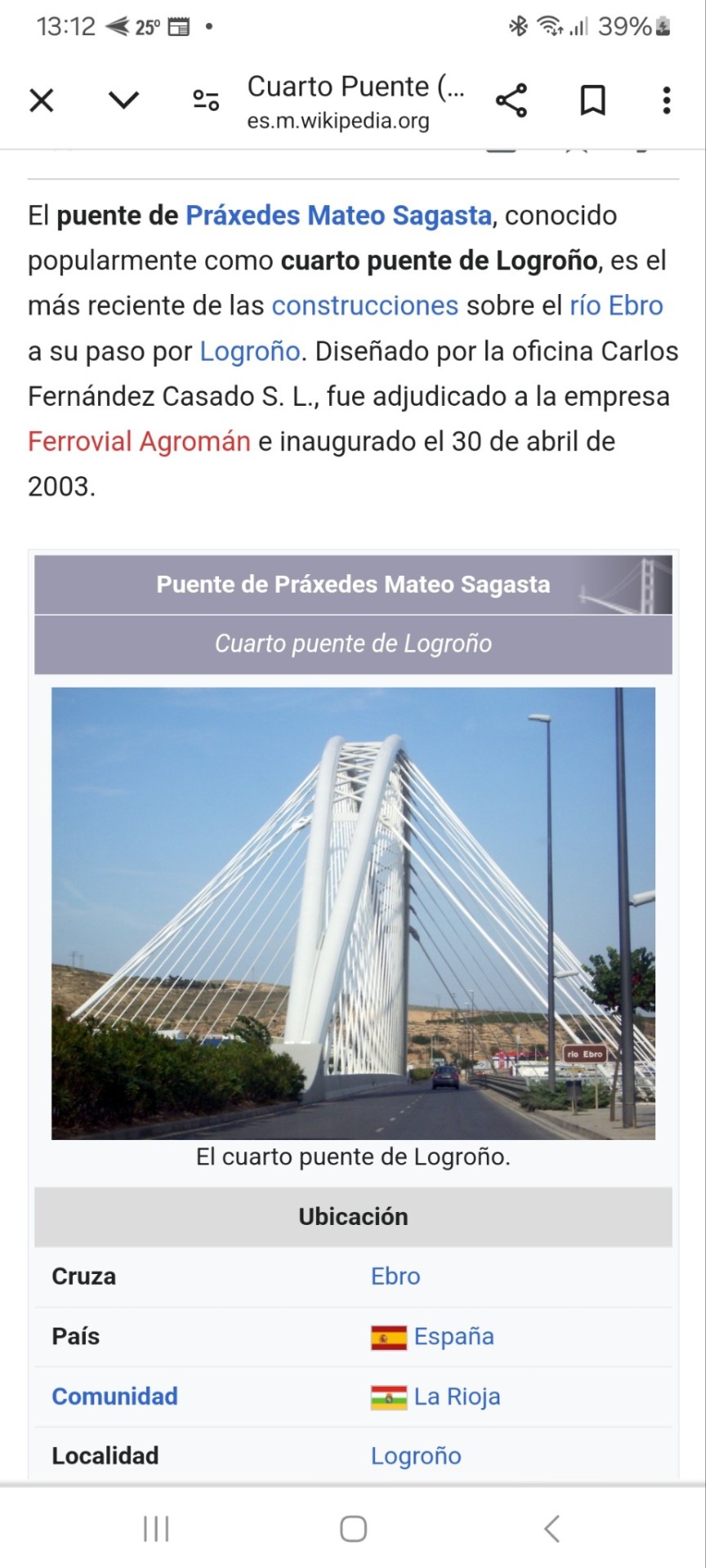
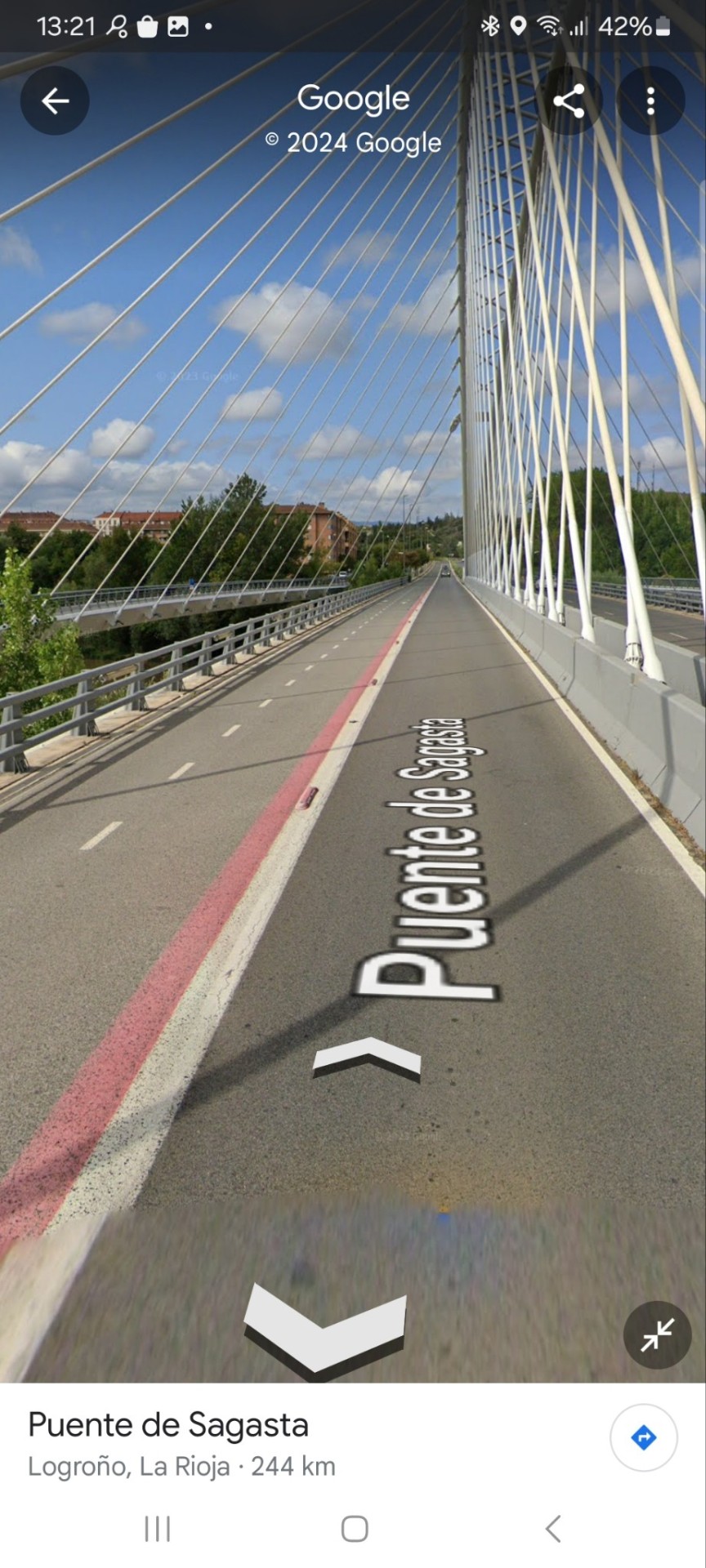
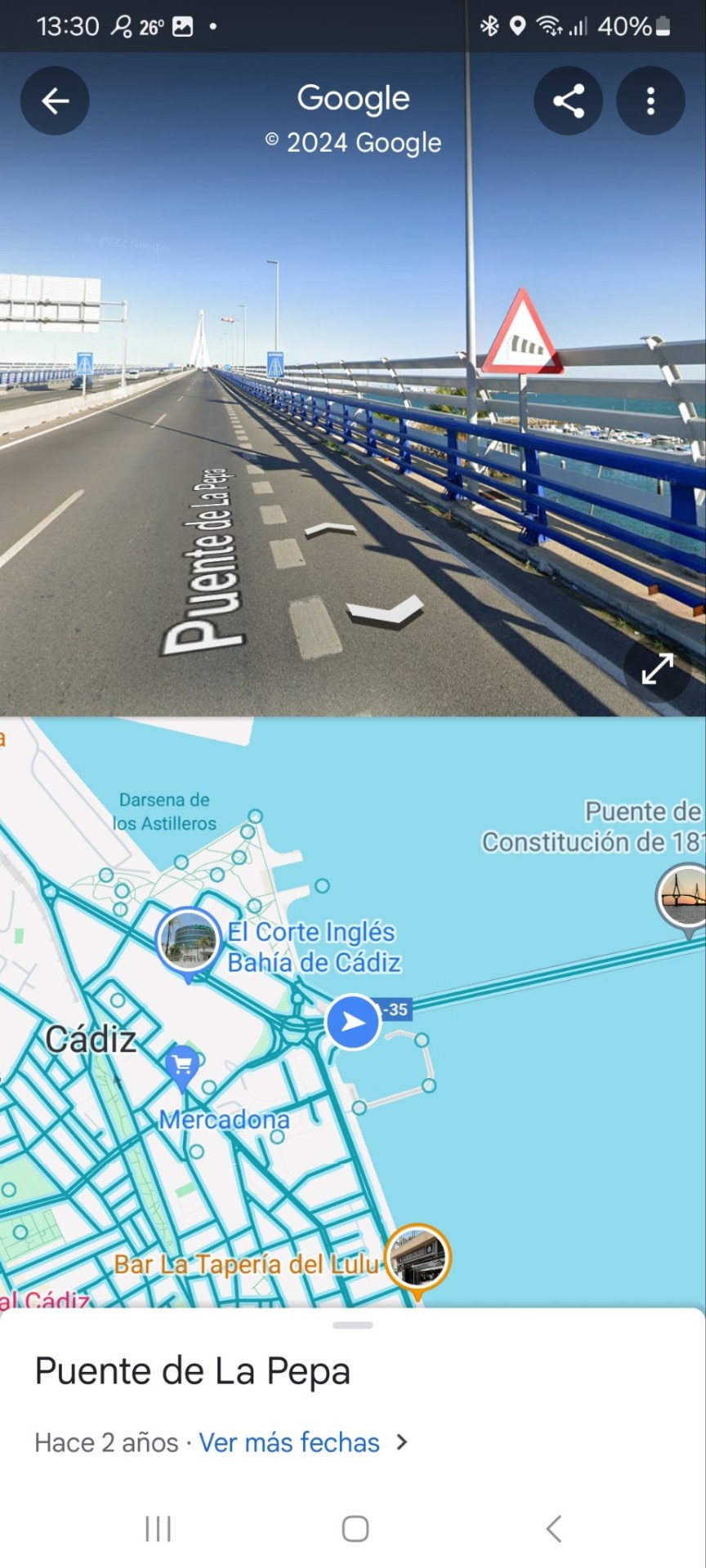
0 notes
Photo

A veces me pregunto hasta donde habrán volado mis fotos y yo sin saberlo o sin que haya una mención expresa al autor. Me alegro que le haya gustado la fotografía @ainhoavitoria. Es la era digital y es todo un trabajo etiquetar 😅. #euskalduna #gazteasariak2023 https://www.instagram.com/p/CphnQtaNX_j/?igshid=NGJjMDIxMWI=
0 notes
Text
[ad_1] Planning a food-themed trip in Europe is one of the continent’s greatest joys. From Copenhagen’s world-renowned Nordic cuisine to Turkey’s transcontinental flavours, Europe’s best foodie destinations are as diverse as the continent’s many cultures. Choosing where to chow down on your travels, though, is a challenge. Some of the most beloved food cities in Europe, such as Paris and Barcelona, are long-standing classics. Yet, Europe’s up-and-coming culinary destinations can be as surprising as they are affordable. With the first Portugal-dedicated MICHELIN Guide being published this February, Copenhagen’s game-changing Noma set to close its doors later this year, and Lithuania’s unsung cuisine commanding a spotlight at Vilnius’ recently established Pink Soup Fest, 2024 could be the year to consider a lesser-visited foodie region for your European gastronomic getaway. Whether you want to indulge in a Georgian feast and thousands of years of viticulture or take a French food tour far from Paris, these are some of Europe’s best food cities and regions to build your next delicious trip around. Portugal’s quality of Atlantic seafood makes the country one of Europe’s best food destinations Porto, Portugal I’ve been calling Portugal home for six years and holidaying here for decades. Seeing the transformation in the country’s food scene has been incredible. I couldn’t have been more proud to attend this year’s first-ever Portugal-only MICHELIN Gala Dinner and see so many young chefs celebrated for their innovation. Yet, while some dining rooms have gotten fancier and many chefs more creative, I love that Portuguese cuisine has remained mainly traditional, with the quality of ingredients always taking pride of place. And while the Algarve’s Mediterranean diet is delicious, and Lisbon boasts plenty of tourist-focused dining rooms, I would argue that Porto is the country’s epicurean capital. This northern city more than holds its own against Europe’s more established food cities. Portugal’s Chef of the Year 2023, the ingenious and young Vasco Coelho Santos, has a handful of top-notch restaurants here. The Atlantic bounty ensures a steady stream of first-class seafood. And with The Douro snaking inland from the city, a perfect glass of Port or a premium bottle of wine is always at hand. Plus, Porto’s prices are pretty wallet-friendly, whether you’re eating traditional tripe at a low-key tasca or splurging on a seat at a chef’s table. Standout dishes, dining rooms and food experiences in Porto Deciding what and where to eat in Porto is all part of the fun. Want something traditional? Order a francesinha, a croque-monsieur-inspired sandwich stacked with cheese, smoked sausage, and meat in a slightly spiced beer sauce – A Regaleira serves the original. Or devour bacalhau à gomes de sá, Porto’s take on Portugal’s beloved salted cod fish. Alternatively, follow in the footsteps of Anthony Bourdain and try tripas à moda do porto – a bean and tripe stew hailing from less affluent times – at A Cozinha do Martinho. If you’d like to indulge, I can’t recommend Chef Rui Paula’s ocean-view Casa do Boa Cho Nova or Vasco Coelho Santos’ Euskalduna Studio enough for fish-heavy, Michelin-starred tasting menus. Over a weekend in Porto, you can easily flit between the Port lodges of Gaia across the river, stroll the sights and atmospheric restaurants along the Ribeira, snack and shop at Bolhão Market, and even fit in a train or boat trip to the Douro’s vineyards. If you want a more intimate experience with one of Portugal’s best chefs, contact The Art of Tasting Portugal, where the lovely Patricia and her team will help you see the city through the eyes (and palate) of a local gourmand. In Lyon, sausages of all kinds are one the start of a gourmands getaway Lyon, France Lyon is one of France’s best cities to plan a gastronomic getaway. In fact, many would say it’s not just the country’s best city for cuisine but the “Food Capital of the World”.
Yes, forget Paris’s fast-paced brasseries, pretty boulangeries and intimate bistros and set your foodie sights on Lyon’s bouchons, the typical restaurants of France’s third-largest city. But why is Lyon considered one of Europe’s best food cities? Well, Lyonnaise cuisine has evolved over many centuries, from Romans introducing wine and perfecting their pork products to Italian influence arriving and upping the game in the 16th century. However, the city’s surrounding terroir has always been a constant. With the Alps on its doorstep, the Mediterranean to the south, and the fertile farmlands ideal for rearing livestock to the north, it’s well placed at Europe’s culinary crossroads – it’s a city where both Butter and Olive Oil are common rather than competition. Add all of these excellent regional flavours, the nearby wine appellations, Lyon’s atmospheric dining rooms and a gorgeous Old Town with plenty of al fresco terraces together, and you’ve got one of Europe’s best destinations to eat and then eat some more. Lyon’s Old Town is pretty and delicious, making it one of Europe’s best food cities Must-try dishes, restaurants and food tours in Lyon Pork is plentiful in Lyonnaise cuisine, and charcuterie comes in hundreds of forms. Boudin Noir blood sausages, coarse-stuffed andouillette served with mustard, and the crimson-coloured Rosette de Lyon, a cured saucisson, are just a few favourites. Heartier meals, such as meat-stuffed quenelle dumplings bathing in a creamy sauce or coq au vin, a rich, red-wine-soaked chicken dish feature on nearly every menu. When you need a break from meat, a poached-egg-topped salade lyonnaise is a light lunch break. For a Michelin-starred tasting, you can’t go wrong at the legendary, late Paul Bocuse’s restaurant or ingenious Guy Lassausaie’s contemporary dining room. More affordable daily lunch menus are easily found on a stroll around the river-flanked Presqu’île arrondissement. Still, Lyon is even better if you extend your visit to include a nearby wine region, such as Beaujolais or Burgandy. Book one of these incredible culinary travel packages through east-central France, and not only will you sample Lyon’s delights, but you’ll also tour vineyards bottling oaked Chardonnays and young Gamays, which pair perfectly with your epicurean adventure. Pintxos are just one famous sample of what makes Spain’s Basque Country one of the best food destinations in Europe Basque Country, Spain San Sebastián, or Donostia locally, is arguably Spain’s best city to visit for a foodie trip in Europe. For centuries, it has been a utopia for pintxos (the region’s first-class finger foods), secretive gastronomic societies, and chefs looking to lead their class at the world-renowned Basque Culinary Centre. Yet this beautiful, beach-facing city in Spain’s north is only the appetiser – the Basque Country’s degustation also includes crisp, lightly sparkling txakoli wines, ruby red Riojas, and traditional dishes that lean on the fertile land as much as the sparkling sea. Pull all of this together, and you’ve got one of Europe’s best foodie destinations. Spend a couple of days in San Sebastián enjoying bar crawls around the Parte Vieja (Old Town), where it’s all about bar tops laden high with delicious pintxos rather than boozing. Then, head inland to the gorgeous Medieval town of Laguardia. This is where the Basque Country and the famous Rioja Alavesa wine region meet, and a warren of underground tunnels hold all the wine secrets – Bodega El Fabulista is indeed fabulous. Lastly, loop back towards the coast, where the port city of Bilbao offers some of the best-value provincial dishes. Treat yourself to a tasting in an authentic Rioja wine cellar The best dishes and culinary experiences in the Basque Country While San Sebastián is often regarded as Europe’s best food city, you’ll find excellent dishes all across the Basque Country. Away from the perfectly-formed pintxos – Calle 31 de Agosto is the
place to start your bar crawl – provincial plates such as marmitako (tuna stew), bacalao al pil pil (a slightly spicy and salted cod dish), and txipirones en su tinta (baby squids cooked in ink) provide a more filling meal. End the night with burnt Basque cheesecake, perhaps from La Viña, and you’ll be in foodie heaven. None of this needs to cost a fortune, but if you fancy a Michelin-starred splurge, Etxanobe Atelier in Bilbao or Elena Arzak’s self-titled, three-starred restaurant in San Sebastián are a worthy investment. If you’d prefer to let someone else handle all the arrangements, I highly recommend Intrepid’s Northern Spain Food Tour, which I took a few years back. From Barcelona to Santiago de Compostela, it was a mouthwatering journey, with much of our time spent devouring everything the Basque Country has to offer. The bonus of taking a tour like this is you will get access to a txoko, one of San Sebastián’s intimate, low-key, invited-only communal kitchens where you can enjoy a true taste of neighbourhood hospitality and Basque cuisine. Italy is renowned as Europe’s best food destination, with each region retaining local specialities Florence, Italy Write a list of the best food cities in Europe, and there will be plenty of Italian options vying for the top spot. And while Emilia Romagna is perhaps my favourite Italian region for food, Florence might be the most all-rounded city to take a bite out of Italian cuisine. Yes, pizza and pasta are staples on any trip to this culinary-blessed country, but Tuscan cuisine goes beyond the headliners. All of the region’s flavours and acclaimed wines have had plenty of time to be perfected in one of the country’s most visited UNESCO-listed cities. Of course, eating is one of the best things to do in Italy no matter where you are, but like every region, Tuscan cuisine has developed on its own terms. The first clue is in the name. From the Etruscans, the region’s ancient civilization, to contemporary, modern-day chefs, many have played a part in writing Florence’s menu. Simple, fresh ingredients are plentiful. Bread is uncomplicated and unsalted thanks to a 16th-century tax. Olive Oil is on a whole other level. And meat dishes, such as thick-cut steaks and wild game, are as commonplace as cantucci, Tuscany’s typical almond cookies often called biscotti. Florence’s architecture pairs perfectly with Tuscan provincial flavours Tuscan dishes, top restaurants and foodie walks in Florence What makes Florence such a fantastic food destination in Europe is the diversity of restaurants. Given its prominence as a tourism hotspot, you’ll find plenty of popular and pricey eateries around the historic centre, especially near the Duomo and Ponte Vecchio. But across the river in local, laid-back Oltrarno, you can gorge on more affordable trattorie. Wherever you are, don’t miss the chance to sample the region’s signature pasta dishes, such as thick, ribbon-like pappardelle – often served al cinghiale, aka with a wild boat ragù – or stuffed tortelli. Tuscany’s unsalted bread is also commonplace with garlic and oil-topped fettunta (think a Tuscan bruschetta) and pappa al pomodoro, a thick bread and tomato soup found on most menus. Want some high-quality meat? Bistecca alla Fiorentina is always the answer. Pair any of these with one of Tuscany’s standout wines – red is more typical here, Chianti being the most internationally recognised label – and you’ll have a foodie weekend fit for royalty. If you want to upgrade your insights, consider taking this foodie tour in Florence to meet the local farmers, bakers, and chefs as you discover Tuscan flavours in all their forms. And if you’re seeking a special spot to celebrate in one of Italy’s most romantic cities, you won’t have to look far. Settle into a courtyard table at Michelin-starred Enoteca Pinchiorri, and you’ll be well placed for both a proposal and a provincial feast. Khinkali, Georgia’s excellent mince-stuffed soupy dumplings, are one of Europe’s best dishes
Georgia (yes, the whole country) When it comes to discussing the best food in Europe, Georgian cuisine is often tragically overlooked. Yet this country has gifted the world some of the oldest and best wines you’ll find, dishes with so much creamy cheese they should be criminal, and perhaps the most perfect dumplings you’ll ever try. This is one of my favourite foodie destinations in Europe to feast, something that’s so ingrained into the culture that supras – seemingly never-ending, table-piled-high feasts – are an integral part of society. Not that this is anything new. Winemaking in Georgia goes back some 8000 years. After enjoying your first glass of qvevri – the traditional method of production in clay vessels – aged red wine from Saperavi or little-known white Rkatsiteli, you’ll see what all the fuss is about. The table is equally historical, and Georgian cuisine has been influenced by ancient grilling practices (mtsvadi), neighbouring nations, Mediterranean travellers, and Old Silk Road seasonings. Still, there’s even more to discover beyond the national dishes, as each region proudly retains its local specialities. My friend Nicky and I couldn’t get enough of Restaurant Amra’s Abkhazian wines and dishes What and where to eat and drink in Georgia Georgia doesn’t have a Michelin Guide – it honestly doesn’t need one. Instead, take yourself on a self-guided food tour around Tbilisi, Georgia’s capital and one of Europe’s most underrated cities, and you’ll find endless affordable restaurants to try dishes from every region. The Abanotubani district is where most of the touristy restaurants are, but it’s well worth exploring further. Two of my favourite spots are Chashnagiri, a local chain where you can try many different dishes affordably, and Amra, which specialises in dishes and wines from the Abkhazia region. Whatever you do, don’t miss khinkali, Georgia’s excellent mince-stuffed dumplings, which have their own eating method to sip the soup inside. Khachapuri, a boat-like bread stuffed with cheese and an egg, is utterly indulgent. Badrijani, eggplant and walnut paste rolls are divine. And chkmeruli, a slow-cooked garlic-sauced chicken dish, is one of my favourites. Honestly, just thinking about these dishes makes me salivate. It’s easy enough to go it alone and eat your way through Tbilisi and Georgia. But, if you fancy a food tour or want to visit a wine region, reach out to my old housemates Tom & Megan, who run Eat This Food Tours in Tbilisi, and they’ll happily guide you through Georgia’s gastronomy. [ad_2] Source link
0 notes
Photo
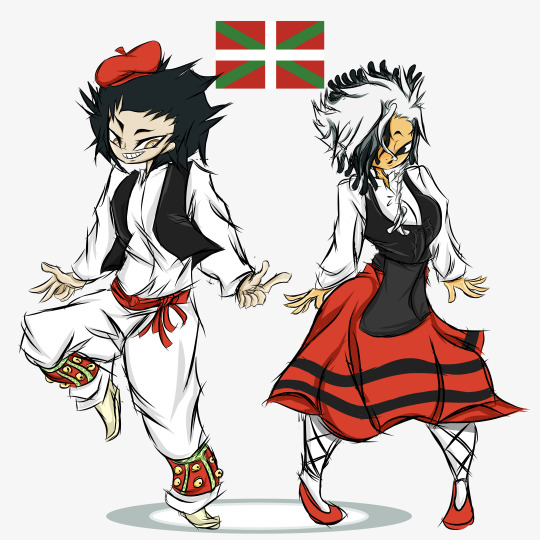
BLAABR- Basques!
Finally startin those nationality doodles I mentioned a bit ago, naturally we start with Euskaldunak!
BLAABR is set in a fictional Basque island city so most characters are Basque or some mix of french or ethnic groups of Spain. For time sake I only doodled Marko and Nekane~
#blaabr#bad luck and a bank robber#marko sagar#nekane abaroa#basque#euskalduna#nationality#country#ocs#Character Design
4 notes
·
View notes
Text




Through the Years → Felipe VI of Spain (2,685/∞) 6 October 2021 | King Felipe, at the opening of the SUM Bilbao 2021 Congress at the Euskalduna Palace, in Bilbao, Basque Country, Spain. During two days 90 local, national and international experts will address the main challenges and opportunities for cities to consolidate a more sustainable mobility. (Photo By H.Bilbao/Europa Press via Getty Images)
0 notes
Text

“Y en una cierta reunión
se dio una comida un día,
y allí se partió un melón,
única fruta que había.
Yo partí de mi sandía
y le brindé a una casada,
me dijo desconsolada
muchas gracias caballero,
que luto tengo y no puedo
comer fruta colorada.” - Pepe Marchena
#española#flamenca#flamenco#carmen#rosalia#literatura española#spanish literature#spanish#euskalduna#basque#lirica#lirica andaluza#pepe marchena#hispanic#hispanos#florida#gold#goldjewelry
5 notes
·
View notes
Text
La Renfe Mikado 141 F 2413 construida por Euskalduna de Bilbao en el año 1960 con el número de fábrica 374, perteneciente al último lote de Mikados de Renfe construido por Euskalduna de Bilbao en los años 1956 (numerado del 2385 al 2388, con los números de fábrica del 346 al 349) 1957 (numerado del 2389 al 2400, con los números de fábrica del 350 al 361) 1958 (numeradas 2401 y 2402, con los números de fábrica 362 y 363) 1959 (numerado del 2403 al 2409, con los números de fábrica del 364 al 370) y 1960 (numerado del 2410 al 2417, con los números de fábrica del 371 al 378). La vemos en Madrid Delicias en el año 1987

2 notes
·
View notes
Photo

#museo #MuseoMaritimo #riadebilbao #euskalduna #Karola #ancla #Bilbao #Bizkaia #Euskadibasquecountry #espaciofotografico #Bizkainews #VeryBilbo (en Museo Marítimo Ría de Bilbao)
#museo#riadebilbao#verybilbo#museomaritimo#euskalduna#espaciofotografico#karola#bilbao#ancla#bizkainews#bizkaia#euskadibasquecountry
1 note
·
View note